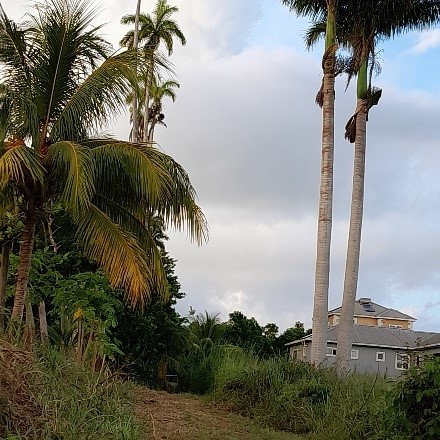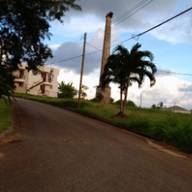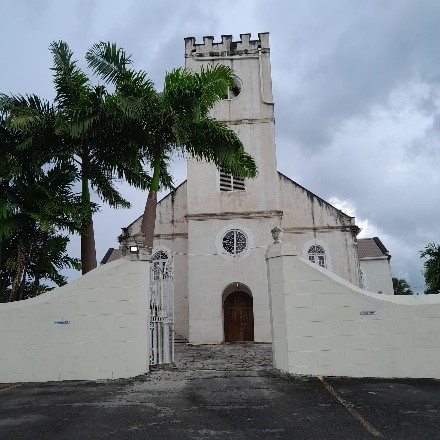A brutal, sinister plot of crime and violence reared its ugly head in Barbados in the year 1821, when at Mount Wilton Plantation in the parish of St. Thomas, the owner Reynold Alleyne Ellcock was viciously murdered. The horror of this murder was described in the newspapers of the day as, “barbarous … unparalleled in atrocity … a foul crime, … diabolical, … heinous …” In total dismay and revulsion, the writer also made it clear that, “Such a diabolical instance of murder has never been known in this island.”
Reynold Alleyne Ellcock was a member of the wealthy Barbados planter-class; he was born on the island in the year 1789. Ellcock was the son of Dr. Grant Ellcock and Anne Ellcock, nee Sieuzac. This branch of the Alleyne family were all born here into the prominent, landowning class of the Alleyne family, whose roots ran back to Kent in England. As a matter of fact, Colonel Reynold Alleyne, for whom Ellcock was probably named, was one of the colonists who was killed as he disembarked the ship landing at Fort Royal, Speightstown, during the battle of 1651. The possession of the English crown was at stake and this early ancestor was involved in the English civil war that extended to the shores of Barbados, as opposing factions jostled for power in Europe, that would also affect Barbados.
Following that illustrious bloodline, Reynold Alleyne Ellcock would find his place within the order of this early, powerful, well-positioned, high-ranking, landowning, English settler family. He would join the landowning gentry, where he owned the large Mount Wilton plantation, from 1812 to 1821, the time of his death. This 620-acre property attracted the attention of the travel writers of the day, who visited the island. Articles described the property as being located at a prime site with an impressive size and as ‘the noblest estate in the island.’ Reynold Ellcock marriedMary Mercy Applewhaite and later they had a daughter Mary Ellcock, later Harris.
At the early age of only thirty-two years old, life would turn tragic for Reynold Alleyne Ellcock. In the year before his death, due to reasons that remain unclear, Ellcock, in his will, was moved to bequeath a sum of £5 per year. This would apply for each year from the signing of the will to his death, and the beneficiaries would be the one hundred and twenty enslaved people on his Mount Wilton Plantation. When this information became known, a murderous conspiracy developed between four enslaved men to take matters into their own hands. Three of the conspirators, especially Jeffry, were trusted people on the estate, who had open access to their owner, while the fourth man Billy Prince was the property of another estate owner. Jeffry is said to have promised Prince a reward for his help in committing the murder. The other accomplices were James, Jack Grig, a watchman and a mulatto woman named Ritta, who was a housekeeper, all belonging to Mount Wilton plantation. Together, they plotted to murder Mr. Ellcock, believing that if they hastened his death, it would immediately result in the proceeds of the will being paid, enhancing their financial fortunes. So, on Tuesday October 2, 1821, Reynold Alleyne Ellcock was attacked and brutally murdered in his bedroom at the Great House of Mount Wilton.
The Barbados Mercury and Bridgetown Gazette reported the gruesome details of the murder and the speedy confession of all the perpetrators of the heinous crime. On October 12, 1821, they were tried and sentenced to death by hanging. The newspaper further detailed that the sentence was carried out on the following day October 13, 1821, where the four men were hung at the Mount Wilton Plantation, their heads were severed and set on stakes at prominent areas on the plantation, while their bodies were exposed and placed in chains. This was designed to punish the wrong-doers but also to send a strong message to the other members of the plantation community. The lone woman involved in this scheme seems to have been absolved of her involvement, as Jack Grig testified that although Ritta had sent him to Billy Prince about the plot, she had no involvement in the execution of the final crime.
At the time of his death Reynold Alleyne Ellcock and his wife Mary Mercy Ellcock, nee Applewhaite were living in separate locations, while he lived at Mount Wilton in the parish of St. Thomas, she resided at Dayrells Plantation in Christ Church. By 1833 she had left Barbados for England. However, records established that the Mount Wilton Plantation remained within the ownership of the Alleyne/Harris family. Reynold Alleyne Ellcock’s daughter also named Mary, moved to England where she married Thomas Noel Harris, Jr. and together they had eight children. She died in England at age eighty years.
Reynold Alleyne Ellcock lost his life tragically, a mere five years after the renowned Bussa Rebellion of 1816, when the enslaved rose up in an effort to secure their freedom. It has been reported that during that uprising, Ellcock was involved in using his enslaved people to prevent the enslaved from the north passing through his area to meet up with the other groups in the south and east, who were trying to join the battle.

pathway could have been the driveway
to the Great House at Mount Wilton Plantation
where Reynold Alleyne Ellcock was murdered

this structure was possibly the home of
the manager.





remains of Reynold Alleyne Ellcock were
laid to rest. This is the parish church for
the parish of St. Thomas, where he lived.

